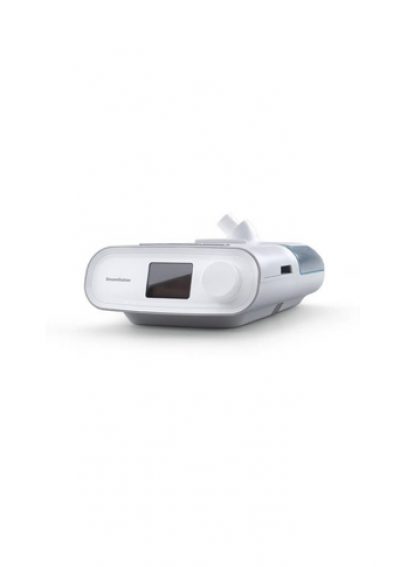CPAP Alternatives
CPAP alternatives such as medications, BiPAP machines and lifestyle changes offer more sleep apnea treatment options for people who cannot tolerate CPAP therapy. Medical providers can help a patient decide which alternative option is right for them depending on the severity of sleep apnea symptoms.

Why Seek CPAP Alternatives?
CPAP machines are the first line of treatment for sleep apnea. But people who have difficulty adjusting to CPAP treatment or who have been using a recalled Philips CPAP machine may require CPAP alternatives.
Philips recalled its CPAP, BiPAP and ventilator machines in June 2021 because sound abatement foam in the devices could cause toxic and carcinogenic health problems. Some people are filing Philips CPAP lawsuits after they suffered respiratory problems, cancer and other serious health problems.
Fortunately, people who need other treatment options for sleep apnea have a few choices they may be able to discuss with their medical provider. These include: BiPAP machines, lifestyle changes, medical devices and medications or surgery.
BiPAP Machines
BiPAP machines are popular alternatives for treating sleep apnea in some people who cannot tolerate CPAP therapy. They can be utilized as an alternative to CPAP when one pressure setting is not enough to help obstructive sleep apnea symptoms.
Patients with lung problems such as COPD and high CO2 levels, in addition to obstructive sleep apnea, may also benefit from BiPAP therapy, as could those with asthma flare-ups or anyone having trouble breathing after an operation.
Like CPAP machines, BiPAP machines use pressurized air to help people breathe better. But instead of a single pressure setting, BiPAP machines have a stronger inhale pressure and a lower exhale pressure.
The Philips CPAP recall also included some of the company’s BiPAP machines, but your medical provider may be able to recommend another brand. Side effects with BiPAP machines are similar to CPAP side effects.
BiPAP side effects include: Dry mouth, eye irritation, stomach bloating, sinus congestion and skin rashes or marks from the mask. Similar to CPAP, many of these side effects are caused by a poor fitting mask.
Lifestyle Changes
People with milder sleep apnea may be able to discontinue CPAP therapy and use lifestyle changes to control or improve sleep apnea symptoms. But people with severe sleep apnea might not be able to control their symptoms with lifestyle changes alone.
Lifestyle changes often involve healthy habits such as: Eating a better diet, getting more physical activity, quitting smoking and limiting alcohol consumption. Because obesity is associated with sleep apnea, maintaining a healthy weight can improve symptoms.
Reduced physical activity and increased sedentary behavior may independently contribute to development of obstructive sleep apnea (OSA) through increased adiposity, inflammation, insulin resistance and body fluid retention.
Some research has shown lifestyle changes may reduce sleep apnea symptom severity. For example, one 2021 study published in Sleep and Breathing found adopting a Mediterranean-style diet and exercising for 30 minutes or more each day decreased the likelihood of insomnia in people with obstructive sleep apnea. Another 2021 study published in European Respiratory Journal found an active lifestyle may reduce the incidence of obstructive sleep apnea.
Another 2020 study in Public Health Nutrition found people who consumed more alcohol were more likely to have short sleep duration and to snore. Hard liquor in particular had a significant link to poor sleep quality, while beer and wine didn’t have the same effect.
Medical Devices & Medications
Mandibular repositioning devices and tongue-retaining devices are two examples of medical devices doctors may recommend to keep the airway open. In people with sleep apnea, poor positioning of the jaw and tongue contribute to airway blockages.
Oral appliances such as mandibular devices support the jaw to keep it from sliding back and tongue-retaining devices hold the tongue in place. A dentist will work with a sleep specialist to custom fit devices for each patient.
In addition to medical devices, medications such as nasal sprays, decongestants and antihistamines may provide some relief. But these medicines aren’t recommended for long-term use. Drugs that may help with daytime sleepiness include: Provigil (modafinil), Nuvigil (armodafinil) and Sunosi (solriamfetol), which is a drug that is FDA-approved for excessive daytime sleepiness in people with obstructive sleep apnea.
Keep in mind that medications may have side effects. For example, Provigil and Nuvigil have been linked to birth defects. Sunosi may increase blood pressure and heart rate.
Sleep Apnea Surgeries
Sleep apnea surgery is typically reserved for people whose sleep apnea hasn’t responded to more conservative treatment or who cannot tolerate CPAP treatment. Some surgeries are simple outpatient procedures, while others are major surgeries that require general anesthesia.
Each procedure has a varying rate of success that depends on the technique and the circumstances of each patient. Make sure to discuss the risks of each type of surgery with your doctor.
- Double-jaw advancement
- Double-jaw advancement surgery is also called maxillomandibular or bimaxillary advancement surgery. This surgery prevents the soft palate and tongue from blocking the airway by moving the upper and lower jaws forward. Long-term success rates are close to 90 percent, according to Penn Medicine.
- Nasal surgery
- Nasal surgery for sleep apnea can increase nasal passage size and correct nasal abnormalities such as a deviated septum. This makes it easier for air to pass through the airways.
- Uvulopalatopharyngoplasty (UPPP)
- Uvulopalatopharyngoplasty (UPPP) removes tonsils, the uvula and parts of the soft palate and throat to widen the airway. Scar tissue from the procedure also helps to stiffen the airway walls and prevent soft palate collapse while the patient is asleep.
- Tongue reduction
- Tongue reduction surgery removes excess tissue from the back of the tongue that can block the airway and cause sleep apnea. People born with macroglossia or Down syndrome may have abnormally large tongues.
- Hypopharyngeal procedures
- Several types of hypopharyngeal surgery open the airways behind the mouth and nasal cavity. These various procedures include: Using electrical impulses to activate muscle tone in the airway, repositioning the tongue and shrinking and tightening the base of the tongue.
Some patients may require more than one type of surgery because they have several causes of airway obstruction.
Make sure to choose a surgeon that specializes in surgery to treat sleep apnea. They will evaluate the unique anatomy of each patient to determine if they are a candidate for surgery and which option will work best.
Choosing a CPAP Alternative
If you are interested in a CPAP alternative, make an appointment with your medical provider to discuss your options. You can work together with your doctor to choose the right CPAP alternative for you.
Simple solutions may include changing sleeping positions or trying mouth and throat exercises, called myofunctional therapy, to strengthen muscles and keep them from sagging and blocking the airway. So far, reliable data on myofunctional therapy is lacking, but some evidence suggests it reduces daytime sleepiness and may improve sleep quality. Sometimes adjusting pressure settings or the type of mask can help patients better tolerate CPAP.
It can be frustrating trying to find the right alternative that works for you. You may have to try more than one type of therapy, or combine alternatives.
It’s important to tell your doctor how your treatment is going so they can make adjustments to your treatment plan and suggest other options. Before choosing more invasive treatments such as surgery, make sure you weigh the risks and the success rates of each procedure.
9 Cited Research Articles
Consumernotice.org adheres to the highest ethical standards for content production and references only credible sources of information, including government reports, interviews with experts, highly regarded nonprofit organizations, peer-reviewed journals, court records and academic organizations. You can learn more about our dedication to relevance, accuracy and transparency by reading our editorial policy.
- Kechribari, I. et al. (2021). Association of adherence to the Mediterranean diet and physical activity habits with the presence of insomnia in patients with obstructive sleep apnea. Retrieved from https://link.springer.com/article/10.1007/s11325-021-02351-x
- Liu, Y. et al. (2021). Physical activity, sedentary behavior, and incidence of obstructive sleep apnea in three prospective US cohorts. Retrieved from https://erj.ersjournals.com/content/early/2021/06/17/13993003.00606-2021
- Zheng, D. et al. (2020, November 13). Alcohol consumption and sleep quality: a community-based study. Retrieved from https://www.cambridge.org/core/journals/public-health-nutrition/article/abs/alcohol-consumption-and-sleep-quality-a-communitybased-study/C8A260D7730877B32FA1CAA47116D619
- Rueda, J-R. et al. (2020, November 3). Myofunctional therapy (oropharyngeal exercises) for obstructive sleep apnoea. Retrieved from https://www.cochranelibrary.com/cdsr/doi/10.1002/14651858.CD013449.pub2/full
- Hsu, W-Y. et al. (2019, April). The association between cigarette smoking and obstructive sleep apnea. Retrieved from http://www.tobaccoinduceddiseases.org/The-association-between-cigarette-smoking-and-obstructive-sleep-apnea,105893,0,2.html
- Penn Medicine. (2014). Maxillomandibular Advancement for Obstructive Sleep Apnea. Retrieved from https://www.pennmedicine.org/-/media/documents%20and%20audio/non%20patient%20instructions/sleep%20medicine/penn_mma_booklet_v5%20(1).ashx
- Penn Medicine. (n.d.). Sleep Apnea Surgery for the Throat and Tongue. Retrieved from https://www.pennmedicine.org/for-patients-and-visitors/find-a-program-or-service/sleep-medicine/sleep-apnea-program/obstructive-sleep-apnea-treatment/sleep-apnea-surgery/sleep-apnea-surgery-for-the-throat-and-tongue
- NYULangone Health. (n.d.). Surgery for Obstructive Sleep Apnea. Retrieved from https://nyulangone.org/conditions/obstructive-sleep-apnea-in-adults/treatments/surgery-for-obstructive-sleep-apnea
- Johns Hopkins Medicine. (n.d.). BiPap. Retrieved from https://www.hopkinsmedicine.org/health/treatment-tests-and-therapies/bipap
Calling this number connects you with a Consumer Notice, LLC representative. We will direct you to one of our trusted legal partners for a free case review.
Consumer Notice, LLC's trusted legal partners support the organization's mission to keep people safe from dangerous drugs and medical devices. For more information, visit our partners page.
844-420-1914

